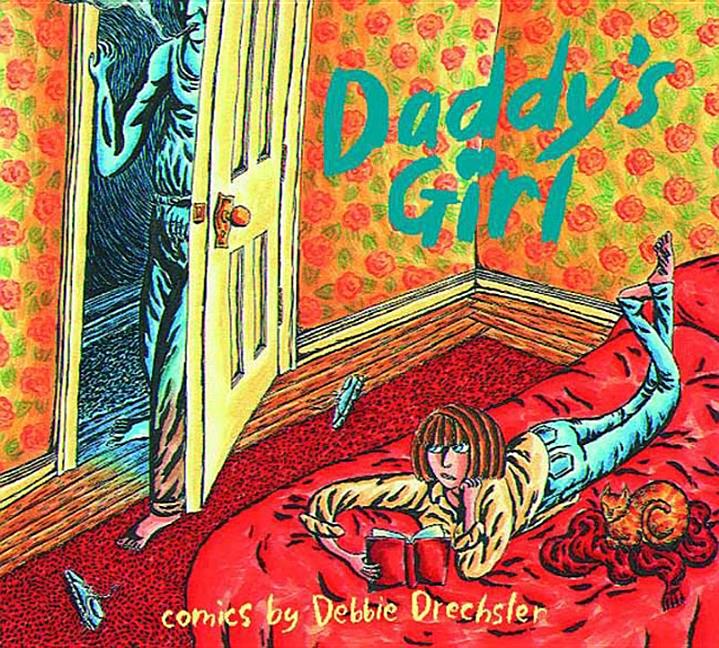Book Description
for Daddy's Girl by Debbie Drechsler
From the Publisher
Fantagraphics Books is proud to re-release one of the most powerful and moving books in its distinguished publishing history: Debbie Drechsler's first collection of short comic stories, Daddy's Girl. Originally published in 1995 and distributed only to comic book specialty stores, Daddy's Girl was ahead of its time: Two years before The Kiss, Kathryn Harrison's critically acclaimed story of her incestuous relationship with her father, Dreschler's account of her abuse at the hands of her father, told from the point of view of an adolescent, is one of the most searingly honest, empathetic, and profoundly disturbing uses of the comics medium in its history.
Rendered entirely in black and white, Drechsler's meticulous brush lines gather into heavy textures that suggest the claustrophobic tension of the environment that threatens her pre-teen and adolescent female protagonists. Characters such as Lily, who can't escape her father's abuse, and Franny, a girl whose desire to be accepted leads her into dangerous territory, struggle not to be visually and emotionally overwhelmed. Both girls are rendered in chunky, rounded lines, as if they've been shaped by the oppressive weight of their blandly suburban milieu, where pretending that everything is all right and maintaining the status quo is prized above truth and upheaval. However, Drechsler's characters also have wide-open eyes, suggesting that they still maintain their innocence, and their world does contain some beauty and hope, as long as the characters have the resolve to look for it: art and creation is offered as a form of salvation. Central to this quasi-memoir is Lily's relationship to her father--a confused jumble of fear, trepidation, and love.
Drechsler's book was nominated for an Ignatz award the year it was released, and she went on to create the critically acclaimed The Summer of Love. With the critical and commercial success of mature and uncompromising works by women cartoonists such as Fun Home, Squirrel Mother, and Persepolis, Daddy's Girl should receive serious media attention and find a responsive readership.
Rendered entirely in black and white, Drechsler's meticulous brush lines gather into heavy textures that suggest the claustrophobic tension of the environment that threatens her pre-teen and adolescent female protagonists. Characters such as Lily, who can't escape her father's abuse, and Franny, a girl whose desire to be accepted leads her into dangerous territory, struggle not to be visually and emotionally overwhelmed. Both girls are rendered in chunky, rounded lines, as if they've been shaped by the oppressive weight of their blandly suburban milieu, where pretending that everything is all right and maintaining the status quo is prized above truth and upheaval. However, Drechsler's characters also have wide-open eyes, suggesting that they still maintain their innocence, and their world does contain some beauty and hope, as long as the characters have the resolve to look for it: art and creation is offered as a form of salvation. Central to this quasi-memoir is Lily's relationship to her father--a confused jumble of fear, trepidation, and love.
Drechsler's book was nominated for an Ignatz award the year it was released, and she went on to create the critically acclaimed The Summer of Love. With the critical and commercial success of mature and uncompromising works by women cartoonists such as Fun Home, Squirrel Mother, and Persepolis, Daddy's Girl should receive serious media attention and find a responsive readership.
Publisher description retrieved from Google Books.


